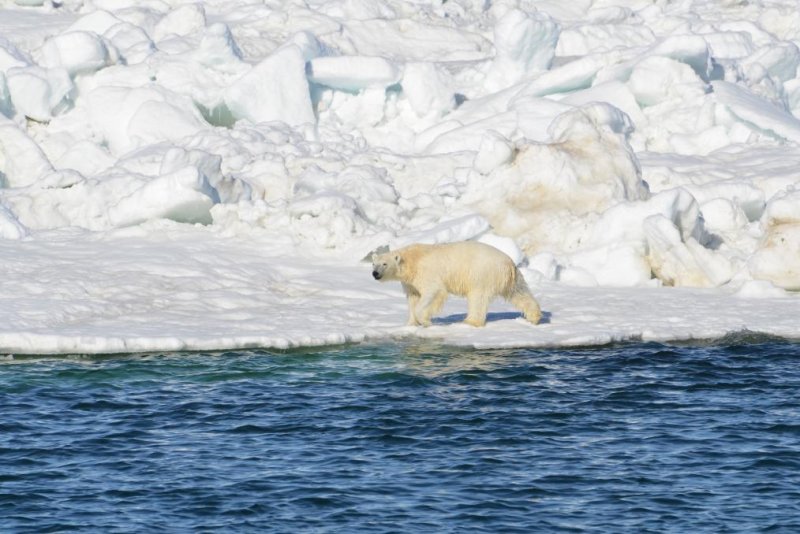Shrinking sea ice is disrupting the hunting habits of polar bears. Photo by Brian Battaile/USGS
RESTON, Va., April 1 (UPI) -- A number of studies have suggested polar bears are exasperated by the scarcity of sea ice -- their hunting and breeding patterns disrupted.
And despite news of the contrary, scientists at the U.S. Geological Survey say interior resources won't provide struggling bears the refuge they seek.
One recent study showed polar bear populations in Canada and Alaska have shifted slowly northward as ice further south disappears. Another claimed the diets of polar bars were increasingly reliant on land-based food -- berries, birds and eggs.
That news was met with cheers from nature-lovers who hoped the science was proof the struggling species was finding away to adapt to a changing climate.
But a new report by the USGS dashes such hopes, claiming the bears rarely eat terrestrial food, and that when they do, they do so out of desperation and to middling ends (from a health and wellness perspective).
"Although some polar bears may eat terrestrial foods, there is no evidence the behavior is widespread," lead researcher Dr. Karyn Rode, a scientist with the USGS, explained in a press release. "In the regions where terrestrial feeding by polar bears has been documented, polar bear body condition and survival rates have declined."
Rode and her colleagues pointed out that only 30 bears -- out of a population ranging from 900 to 2,000 -- had been observed eating birds' eggs.
Even if the strategy catches on, it is unlikely to prove sustainable. Dense marine prey, like the blubber-rich ice seals that dart beneath the Arctic sea ice, is vital to the survival of the polar bear.
"The evidence thus far suggests that increased consumption of terrestrial foods by polar bears is unlikely to offset declines in body condition and survival resulting from sea ice loss," Rode argued.















